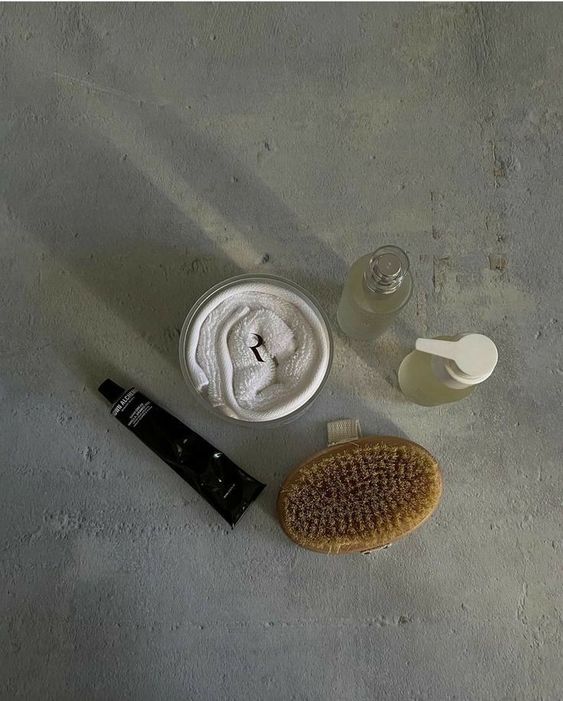
Young, old, and everything in between, women are always on the lookout for techniques to enhance their natural beauty. One way to do this is by investing in Botox and other forms of botulinum toxin. The problem with these treatments is that they do not address all aesthetic concerns, and some undesirable side effects have been linked to their usage as well. In response to this, doctors are complementing the neurotoxin benefits with dermal fillers. Ever wonder what are
fillers' pros and cons
? In this article, we will cover their many advantages and disadvantages, how they can help you look and feel your best, and answer the question:are fillers safe
?Botox VS Fillers
What is the difference?Dermal fillers are injectable substances that are used to plump up sunken areas of the face, such as the cheeks and lips[1]. Fillers are used by doctors to treat and reverse the effects of aging, acne, and other skin conditions. They have become an increasingly popular choice for those seeking to improve their appearance. Dermal fillers represent a quick and easy fix for your beauty woes.
We previously explained that Botox works by blocking the nerve signals that cause the muscles to contract (a form of paralysis)[2]. Dermal fillers are a little different in the sense that they are literally used to fill, contour, and lift the skin to make it look smoother and much more attractive[1]. Whereas Botox® is ideal for dynamic wrinkles (those caused by making expressions), dermal fillers are recommended for static wrinkles (visible when your face is at rest)[1][2].
There are many types of dermal fillers available, some of which are made from natural ingredients and others from synthetic chemicals. Coming next, we will review
fillers' side effects
and indications.Types Of Injectables:
Fillers' Benefits
And Risks-
Hyaluronic Acid or HA
(Restylane, Juvederm, Belotero, Rejeunesse)[3]
This compound is naturally present in many parts of the human body, including the skin. Hyaluronic acid is actually a glycosaminoglycan that helps retain moisture, acts as a cushion, promotes collagen/elastin synthesis and is involved in the wound healing process. The hyaluronic acid used in fillers is produced through a microbial fermentation process. This means that it is 100% cruelty free, biocompatible and biodegradable.
Uses- Moisturizes
- Plumps lips
- Corrects the nose
- Improves facial contour
- Adds volume to cheeks and chin
- Fills fine lines, wrinkles and creases/folds
- Instant and long-lasting effects (6-12 months).
- Minimal discomfort.
- Can be easily dissolved.
- More costly than collagen injections.
- Injection site reaction: edema, pain, redness, itching, bruising.
- Hypersensitivity reaction: infection (herpes, abscess, etc.), surface irregularities, nodules, vascular occlusion, local tissue necrosis, blindness, stroke and Tyndall effect. (bluish hue caused by superficial application of the acid)
- Delayed onset adverse effects: biofilms (slimy layers of microorganisms), dyspigmentation, scarring and granuloma.
-
Poly-L- lactic acid or PLLA
(AestheFill, Sculptra)[4]
This is a synthetic dermal filler (polymer) that has been around for more than four decades. It is non-toxic and biodegradable. Polylactic acid comes in the form of an injectable gel with microspheres that trick the body into producing collagen. So, it acts both as a filler and biostimulator.
Uses- Lip augmentation
- Adds volume to sunken cheeks, temples and tear troughs
- Smooths out nasolabial folds, forehead wrinkles and marionette lines
- Lasts up to 2 years
- Stimulates collagen synthesis
- Little side effects
- At least 3 separate sessions are needed
- Produces gradual results
- Short-term complications: edema, bleeding, bruising, discoloration, edema, embolism, overcorrection and localized cellulitis (deep tissue bacterial infection)
- Long-term complications: granulomas (including paraffinoma, which is a lipogranuloma, persistent papules and subcutaneous nodules
-
Calcium hydroxylapatite or CaHa
(Radiesse)[5]
This naturally occurring substance can be found in human bones. The FDA approved professional grade filler, though, is produced synthetically. The calcium microspheres are suspended in a carboxymethylcellulose gel that is injected at the subdermal level. CaHa is biocompatible and does not contain any animal-derived ingredients.
Uses- Nose and chin augmentation
- Improvement of facial contour and definition
- Improves the appearance of acne scars
- Correction of expression lines, particularly nasolabial folds
- Lasts 1-2 years.
- It is fully absorbed by the body
- Does not usually migrate to other areas
- Boosts collagen synthesis
- Provides very natural results
- Has very low allergy and adverse reaction potential
- Not suitable for highly mobile and thin areas such as lips, mouth, under-eye
- Expensive compared to other options
- Common, short-term complications: bleeding, bruising, bumps, lumps, redness and swelling
- Uncommon complications: allergic reactions, blisters, blindness, cysts, infection, inflammation, numbness, migration to another site, scarring and vascular occlusion
-
Polymethylmethacrylate or PMMA
[6]
This filler is made up of bovine collagen (80%) and polymethylmethacrylate microspheres that add volume and firmness to the skin. Even though it has been around for quite some time, it is not as popular as other dermal fillers because it is not versatile. Its rejuvenating effects, nevertheless, are pretty dramatic and long-lasting.
Uses- Lip augmentation
- Acne scars correction
- Reduction of medium to severe facial folds and wrinkles
- Provides noticeable volume
- Stimulates collagen synthetic
- Firms up the skin and improves dermal texture
- Its results are considered semi-permanent due to their longevity (up to 5 years)
- Lack of versatility
- It is non-biodegradable
- The gel is very thick and can lead to overfilling
- Requires a special injection technique
- Collagen needs an average of 3 months to provide the expected results
- Complications: blindness, bruising, haematomas, itching, foreign body granuloma, redness, swelling, hypertrophic scarring, hypersensitivity, palpable nodules, and tissue necrosis
We do not blame you if, after reading this overwhelming list of side effects, you want to opt for a filler and
Botox alternative
. So, what can you do if you want to avoid filler andBotox injections
? Here are some options:- Chemical peels
- Peptides: argireline (acetyl hexapeptide-8), matrixyl 3000, etc.
- Ultherapy (focuses ultrasound waves)
- Fractionated radiofrequency
- Fractional C02 laser
- Facial yoga
- Facial massage
- Facial acupuncture
- Face patches
- Microneedling
- Red LED
- Active ingredients: retinoids, vitamin C, niacinamide and alpha hydroxy acids
Dermal fillers are a great way to help women of all ages look and feel their best. They are quick, easy, and practically painless to use. There are many different types of dermal fillers available, each with their own benefits. Keep in mind that fillers are not permanent and they all have their fair share of complications. Only a licensed dermatologist or plastic surgeon will be able to recommend the best option for you based on your budget, aesthetic needs, health concerns, etc. A full medical appraisal will help to minimize adverse effects and maximize results.
To learn about the latest skin and beauty tips, make sure to follow us on Instagram, Facebook, Pinterest, and LinkedIn.
References:
[1] How Does BOTOX Work - AAFE - American Academy of Facial Esthetics
[2] Dermal Fillers: What They Are, Types, Benefits & Side Effects (clevelandclinic.org)
[3] Complications of hyaluronic acid fillers and their managements - ScienceDirect
[5] Injectable Calcium Hydroxylapatite (asds.net)
DISCLAIMER: All brand names are the property of their respective owners.




3 comments
Thanks for sharing the information. I learned so much after reading this blog on dermal fillers. I will consider the information provided in this blog for my dermal filler session in NJ. Visit https://anaramedspa.com/dermal-fillers-nj/ to know more.
That was an interesting post. keep sharing. With the newest laser technology and great adherence to safety standards, RMV Kosmoderma is the solution for those searching for laser treatment for acne scars in Bangalore. Call Us Right Away! For more info visit our official website https://rmvkosmoderma.com/ or contact us @ +91 829 677 0733
It’s good that you brought up how fillers are used to treat and reverse signs of aging, acne, and other skin conditions for a quick and easy fix for our beauty woes. My struggle with depression over the past year has caused my face to look sunken, so I want to bring back the volume in my face soon. I’ll be sure to consider injectable fillers once I find a medical spa to contact for an appointment soon. http://www.divinemedspa.com/injectable-treatments